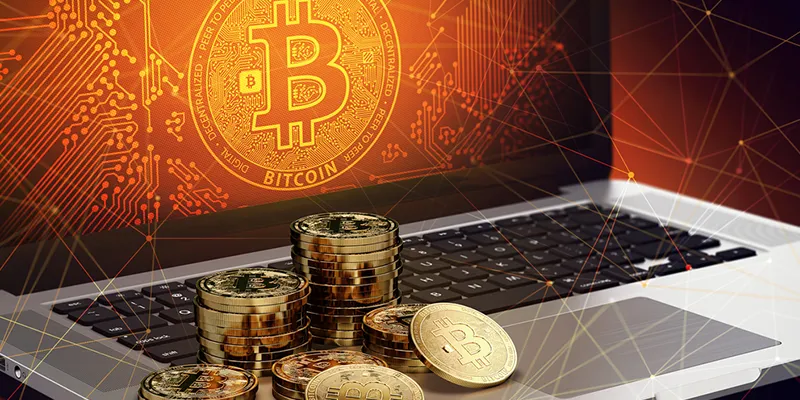How to use blockchain to decode identity, real estate, cloud computing, and the fintech space
Blockchain has rendered solutions low cost and affordable in many sectors, thus making the disruptive innovation have several practical and long-lasting implications.
Blockchain technology has the potential to transform business operating models in the long term. There is no doubt that the use of blockchains will garner significant efficiencies in global supply chains, financial transactions, asset ledgers, and even decentralised social networking. Some blockchain applications are a disruptive innovation since they enable substantially lower-cost solutions to be created, thereby disrupting existing business models.
In this post, let us analyse various use cases of blockchain development company and decode their practical implications.

Real estate
Have you ever noticed how homeowners who refinance or buy properties are subject to significant transaction costs, sometimes including even title insurance? As against this, an individual can put a property on the blockchain so that prospective buyers can review and verify the owner of a property. This process is currently done manually at a steep price. However, the use of blockchain may lead to less expensive and more efficient results.
Transacting real estate is an expensive process where individuals such as brokers, government property databases, title companies, escrow agents, appraisers, and inspectors are all required to complete a transaction. An important reason why they exist is that we cannot access the skills needed to operate existing property transaction ecosystem. With the advent of the blockchain, these intermediaries and the transaction costs associated with them will reduce, thereby reducing the actual costs of the transaction.
Identity
Currently, banking regulations require banks to know KYC, which is stored in a central database. Storing identity and payment related information on a blockchain has numerous benefits, as it improves data quality and reduces the falsely identified or suspicious transactions. An immutable record could also ease the process of getting to know a client and ensure compliance with AML regulations.
Blockchain can also be used to track digital assets, such as the delivery of a car and related documents from the seller to the buyer. In future, title to such digital assets may be made public and all data verified through blockchain. Even the key to such digital assets (the car in this case) may be delivered to the buyer through blockchain who would then use it to start the car. With this technology, the sale of counterfeit goods could be mitigated or potentially eliminated. One can only imagine what their technology could mean for the art world as well.
Cloud computing
Technologies such as Enigma (a decentralised supercomputer on blockchain), which are futuristic, are capable of solving some of the most difficult problems in technology today: privacy and security. Distributed cloud technology might as well transform the data stored and retrieved, helping industries like finance, civil services, or healthcare reach their true potential.
Gambling and betting
Being a multi-billion dollar industry, online gambling accounts for a significant proportion of betting transactions in the whole world. In the past few decades, the internet has seen a great rise, with big gaming players moving their infrastructure online. However, with the advent of blockchain, the gambling industry has seen a host of exciting and new startups reimagining the concept like never before. For instance, VDice is one such startup which has built the world’s first fully decentralised gambling platform using the Ethereum blockchain and is wildly popular among blockchain geeks. It leverages the smart contract technology and has created game codes that exist without a server.
Financial technology (fintech)
Global transactions have increased exponentially and with them has increased the requirement for advanced technology applications to speed up and reduce the transaction costs. Traditional trade processes are often manual, slow, and cumbersome, not to mention the risk and complexities involved in cross-border transactions. Every party involved in the trade cycle, including the intermediaries, custodians, brokers, dealers, clearing, and settlement teams keep their own copy of the record of the transaction, leading to multiple inefficiencies and errors.
Since blockchain does not require verification, clearing and settlement of security transactions (such as equities, repo, and leveraged loans), the scope for manual intervention has decreased considerably and a large amount of capital costs can be saved by use of blockchain. Its use will also simplify the entire process by providing an automated trade life cycle and eliminate significant fees across FX, commodities, and OTC derivatives. Imagine the infrastructural cost savings, transparency in data management, faster processing cycles, minimal reconciliation, and the potential removal of brokers and intermediaries that could result by such a transition.
Conclusion
Blockchain, the distributed database technology with the capability to execute smart contracts, is more than a platform for cryptography. The efficiencies and cost savings provided by blockchain technologies, especially the private blockchains adopted by the financial community, will result in widespread adoption. This will cause the technology to mature at a rapid rate. In parallel, the use of blockchain to affect global transactions will also push it forward toward maturity. It is something that is here to stay for a long, long time.
(This is Part 4 and the final post from a series of opinion articles on blockchain. Read the others here. )
(Disclaimer: The views and opinions expressed in this article are those of the author and do not necessarily reflect the views of YourStory.)







